Lasso, self-satisfied: the right-wing will still govern in Ecuador

There were really no surprises in the second round of the early presidential elections held this Sunday in Ecuador, with Daniel Noboa, of the right-wing National Democratic Alliance, leading the candidate of Correism and winner of the first round, Luisa González, representing Revolución Ciudadana.
According to data from the National Electoral Council, with 94.14% of the valid minutes processed, Noboa reaches 52.12% of the votes (5,024,854); while Luisa González got 47.88% (4,615,492).
Faced with the possibility of a victory for Correismo, the entire right-wing united to support billionaire Noboa, who even had the help of the indigenous community, which decided to annul its vote, due to old disagreements with Correismo.
The decision of the main Aboriginal group to vote against the right and neoliberalism was late and ineffective.
Luisa González's proposals have more similarities with the demands of the indigenous peoples than those of Noboa, who declared that he would not change his government plan to capture the votes of the indigenous communities.
Contrary to the ADN representative, González affirmed that whoever is elected must promote an agreement between all sectors of society, as a starting point to move the country forward.
LASSO, ALWAYS EVIL
When Lasso declared death crossed, no one in the world would have imagined the series of political crimes that were to come.
This fact demonstrated the close interweaving of the Ecuadorian State with the criminal mafias, and what the economic and political elite is capable of doing to hinder the victory of Correismo, who is being pointed out in a biased manner, by various sectors, as the responsible for the crimes.
The first round received the impacts of this new way of doing politics in which the margins of the drug trafficking mafias and State politics are completely blurred and a process of destabilization of the electoral channel is created, seeking to misguide the voter's decision.
Thus, it does not use the path of fear based on ideological conjectures (Venezuela, socialism, expropriations), but Ecuadorian politics has taken a step further to the use of terror as a form of struggle and the immediate alignment of power and its means to generate immediate links between the criminal acts and political actors, specifically with Correismo.
The chain of criminal events, which occurred during the campaign first round, changed the correlation of forces between the candidates and modified popular opinion on several occasions. It was observed how, after each violent event, the polls showed abrupt drops and rises of almost all the candidates in dispute.
The electoral debate of that first round catapulted Noboa, due to his non-polarizing and relaxed style, which distinguished him from the rest of the anti-Correísta and right-wing candidates with an increasingly emboldened speech, which certainly changed the pace of the campaign, from one dizzying and polarized to another of greater sensitivity, empathy and promise of equanimity and peace.
TWO TYPES OF CAMPAIGN
On one hand, there is a record of the official campaigns of both candidates that have tried not to polemicize, with fresh content, with a lot of marketing and full of cheerful social media posts, with optimistic speeches.
But in parallel, another record develops in which the unleashed violence, terror, and the dissolution of the State produce the bloodiest and most violent political-criminal stratagem in the history of the South American nation.
After the debate, on October 6, the seven accused for the Villavicencio crime, who were in state custody, were found murdered, and the only survivor came out declaring, a few days before the second presidential round, that the culprit of the murder was historical leader of Correism, former president Rafael Correa.
A true trick in which it has been revealed that State institutions, especially the justice system, are intertwined with drug-criminal gangs on an unusual scale.
The suspects were in judicial custody, but in prisons where the same gangs accused of the Villavicencio’s homicide govern.
Meanwhile, Noboa, always smiling, played the guitar and evaded the hail of complaints about the links between family businesses and drug trafficking and corruption in order to defeat the Correísta movement.
Translated by Sergio A. Paneque Díaz / CubaSí Translation Staff





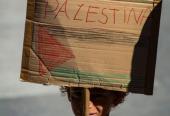
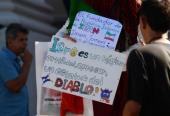
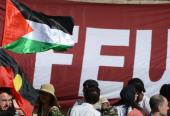
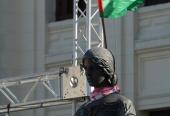

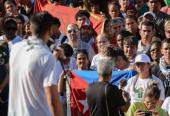


Add new comment